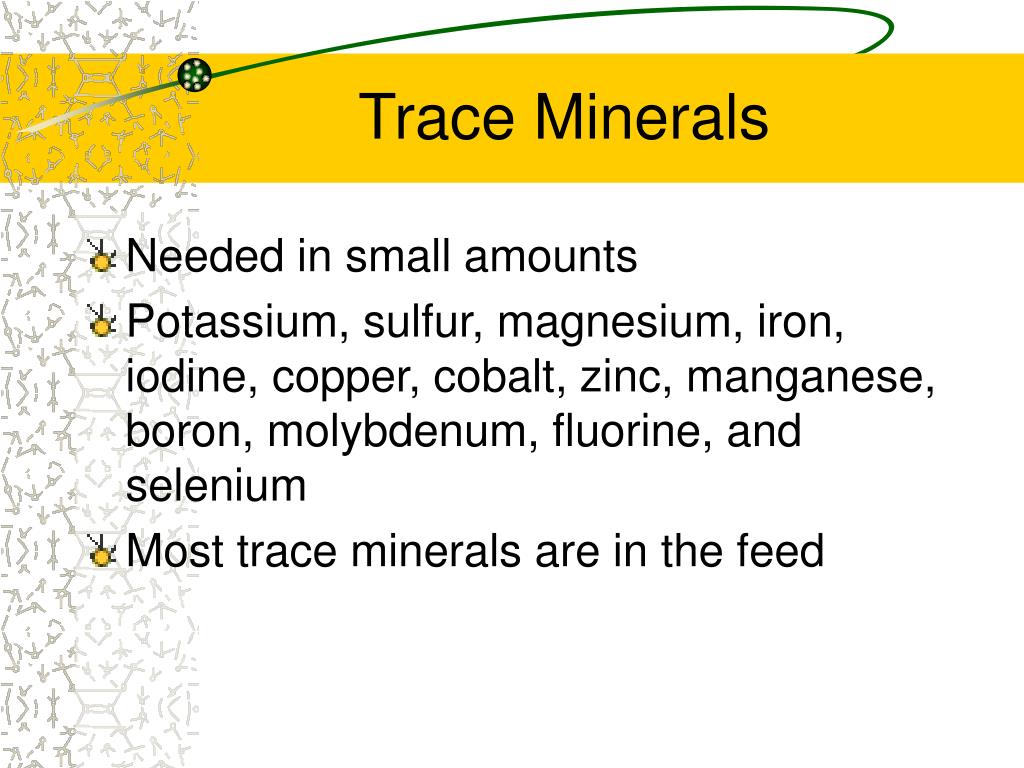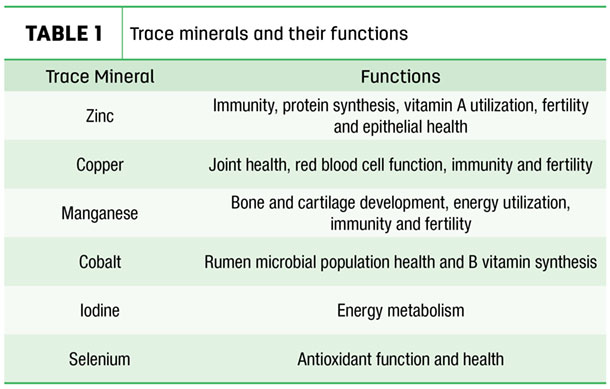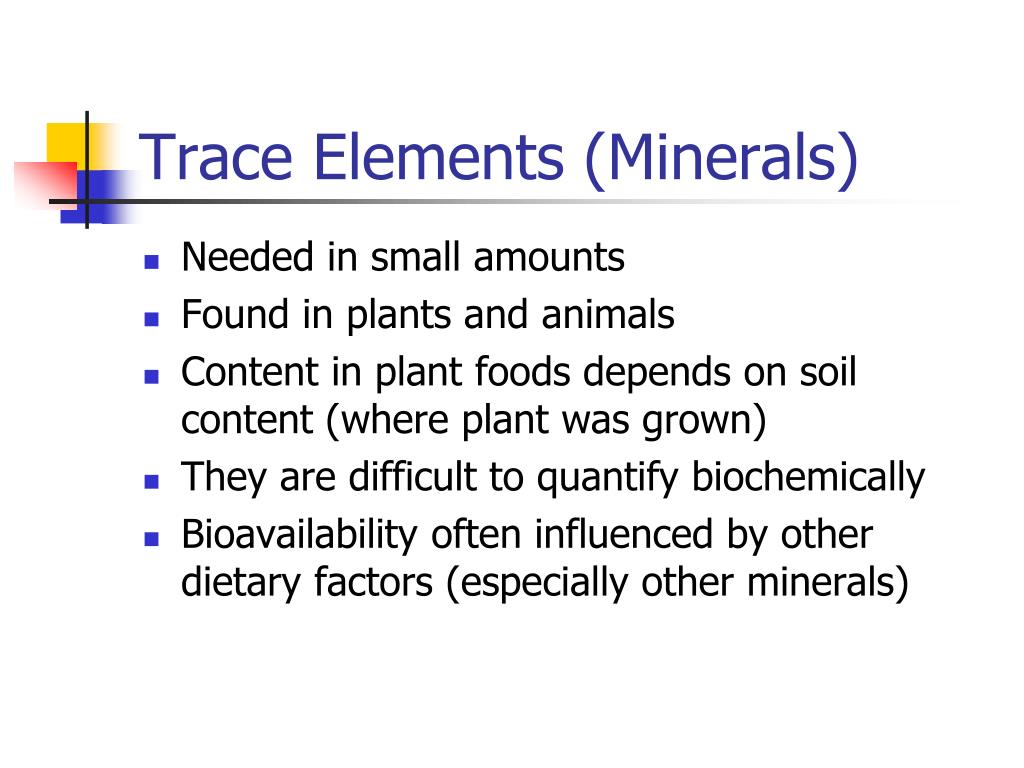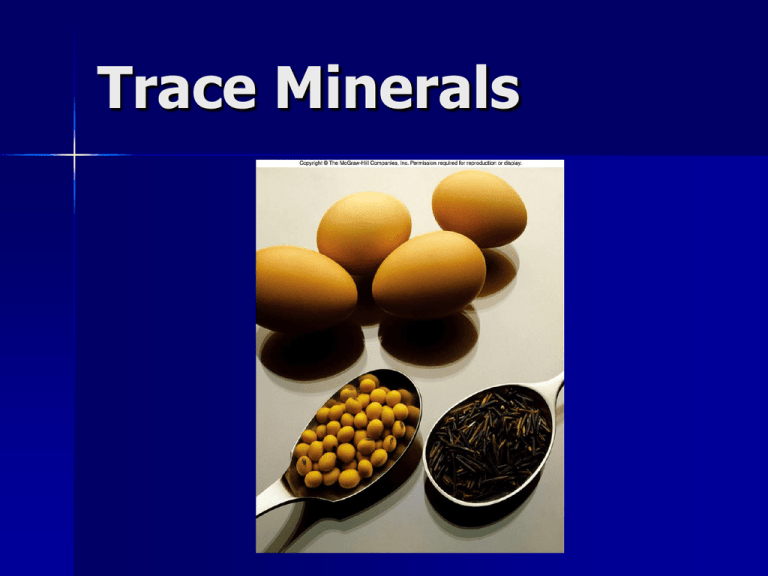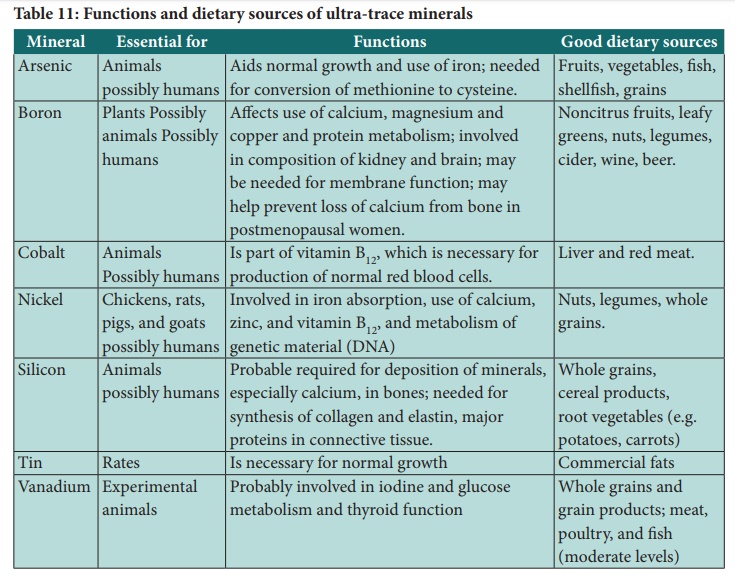Which Of The Following Is Considered A Trace Mineral
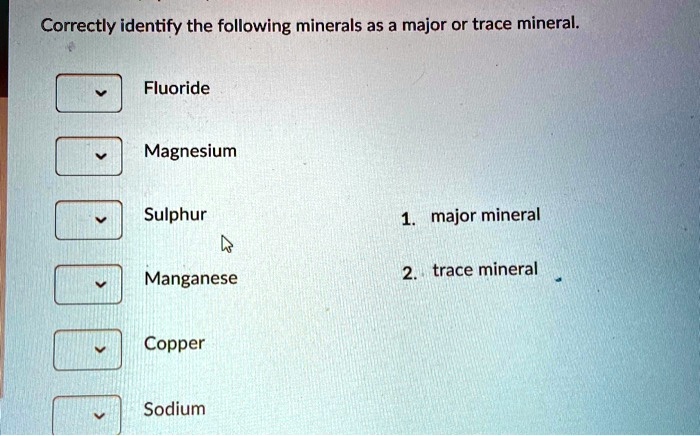
The human body, a marvel of biological engineering, requires a symphony of nutrients to function optimally. Among these, minerals play a crucial role, acting as essential building blocks and catalysts for countless processes. However, not all minerals are needed in equal amounts, leading to the distinction between macrominerals and trace minerals.
Understanding the nuances of trace minerals – their identity, function, and dietary sources – is paramount for maintaining health and preventing deficiencies. This article delves into the world of trace minerals, exploring their defining characteristics and identifying which elements belong to this vital category.
Defining Trace Minerals: A Matter of Quantity
The classification of minerals as either macrominerals or trace minerals hinges primarily on the quantity required by the body. Macrominerals, such as calcium and magnesium, are needed in relatively large amounts – generally more than 100 milligrams per day. In contrast, trace minerals, also known as microminerals, are required in much smaller quantities – typically less than 100 milligrams per day.
Despite their low required intake, trace minerals are no less important than macrominerals. They participate in a wide array of enzymatic reactions, hormone regulation, and cellular functions, playing a critical role in maintaining overall health.
Identifying the Key Players: The List of Trace Minerals
While the exact list may vary slightly depending on the source, the following elements are generally recognized as essential trace minerals for human health:
- Iron (Fe): Crucial for oxygen transport and energy production.
- Zinc (Zn): Supports immune function, wound healing, and cell growth.
- Copper (Cu): Involved in iron metabolism, enzyme function, and nerve health.
- Iodine (I): Essential for thyroid hormone production, regulating metabolism.
- Selenium (Se): Acts as an antioxidant and supports thyroid function.
- Manganese (Mn): Involved in bone formation, enzyme function, and antioxidant defense.
- Fluoride (F): Strengthens bones and teeth, preventing dental caries.
- Chromium (Cr): Enhances insulin action and glucose metabolism.
- Molybdenum (Mo): A component of several enzymes involved in metabolism.
It is important to note that while other elements, such as boron, silicon, and nickel, may play beneficial roles in the body, they are not currently classified as essential trace minerals due to insufficient evidence of their absolute necessity for human health.
Dietary Sources and Potential Deficiencies
Obtaining adequate amounts of trace minerals through a balanced diet is crucial for preventing deficiencies and maintaining optimal health. A varied diet rich in fruits, vegetables, whole grains, lean proteins, and dairy products (or suitable alternatives) can generally provide sufficient amounts of these essential nutrients.
Iron, for example, can be found in red meat, poultry, beans, and leafy green vegetables. Zinc is abundant in oysters, beef, nuts, and seeds. Iodine is often added to table salt and is also present in seafood.
Deficiencies in trace minerals can lead to a variety of health problems. Iron deficiency, for instance, can cause anemia, characterized by fatigue and weakness. Iodine deficiency can result in thyroid disorders, such as goiter. Zinc deficiency can impair immune function and wound healing.
Certain populations may be at higher risk of trace mineral deficiencies. Vegans and vegetarians, for example, may need to pay particular attention to their intake of iron, zinc, and iodine. Pregnant and breastfeeding women have increased nutrient needs and may require supplementation to ensure adequate intake.
The Role of Supplementation: A Word of Caution
While dietary intake is the preferred method of obtaining trace minerals, supplementation may be necessary in certain cases to address deficiencies or meet increased needs. However, it is crucial to approach supplementation with caution and consult with a healthcare professional before starting any new regimen.
Excessive intake of certain trace minerals can be harmful and lead to toxicity. For example, high doses of iron can cause gastrointestinal distress and even organ damage. Similarly, excessive intake of fluoride can lead to dental fluorosis, characterized by discoloration of the teeth.
Therefore, it is essential to adhere to recommended daily allowances and avoid exceeding the tolerable upper intake levels for each trace mineral. A healthcare professional can assess individual needs and recommend appropriate supplementation strategies.
The Future of Trace Mineral Research
The field of trace mineral research is constantly evolving, with ongoing studies exploring the roles of these nutrients in various aspects of health and disease. Researchers are investigating the potential benefits of trace minerals in preventing chronic diseases, such as cancer and cardiovascular disease.
Furthermore, advancements in analytical techniques are allowing for more precise measurement of trace mineral levels in the body, leading to a better understanding of their bioavailability and metabolism. This improved understanding will pave the way for more targeted and effective interventions to address trace mineral deficiencies and optimize human health.
Ultimately, a comprehensive understanding of trace minerals – their identity, function, dietary sources, and potential risks – is essential for promoting optimal health and preventing disease. By prioritizing a balanced diet and seeking professional guidance when necessary, individuals can ensure they are meeting their trace mineral needs and reaping the benefits of these vital nutrients.
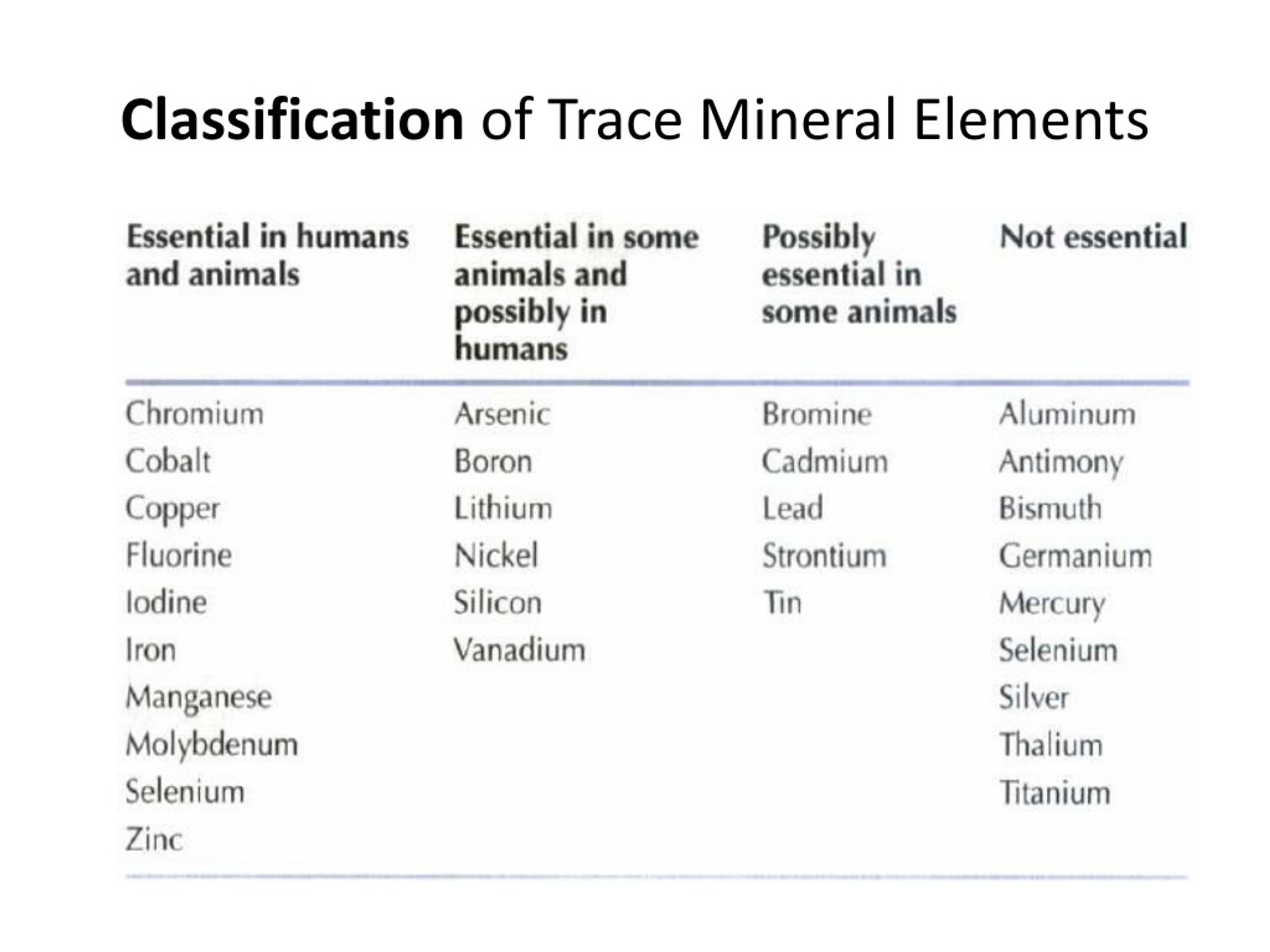
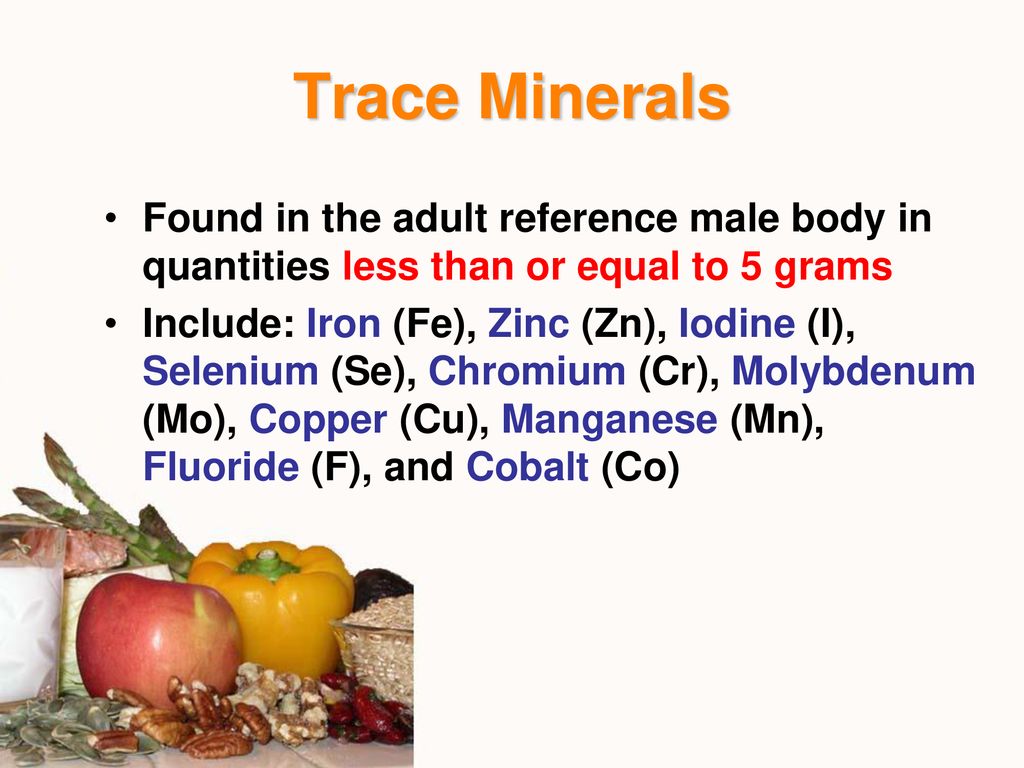
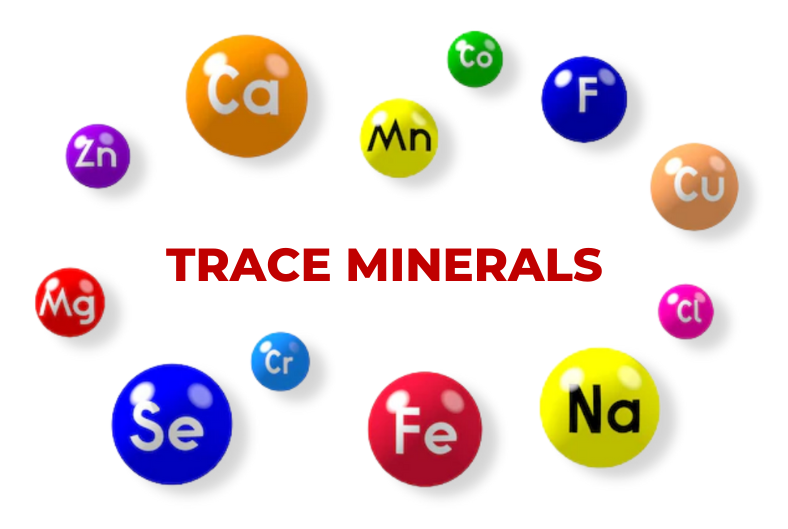
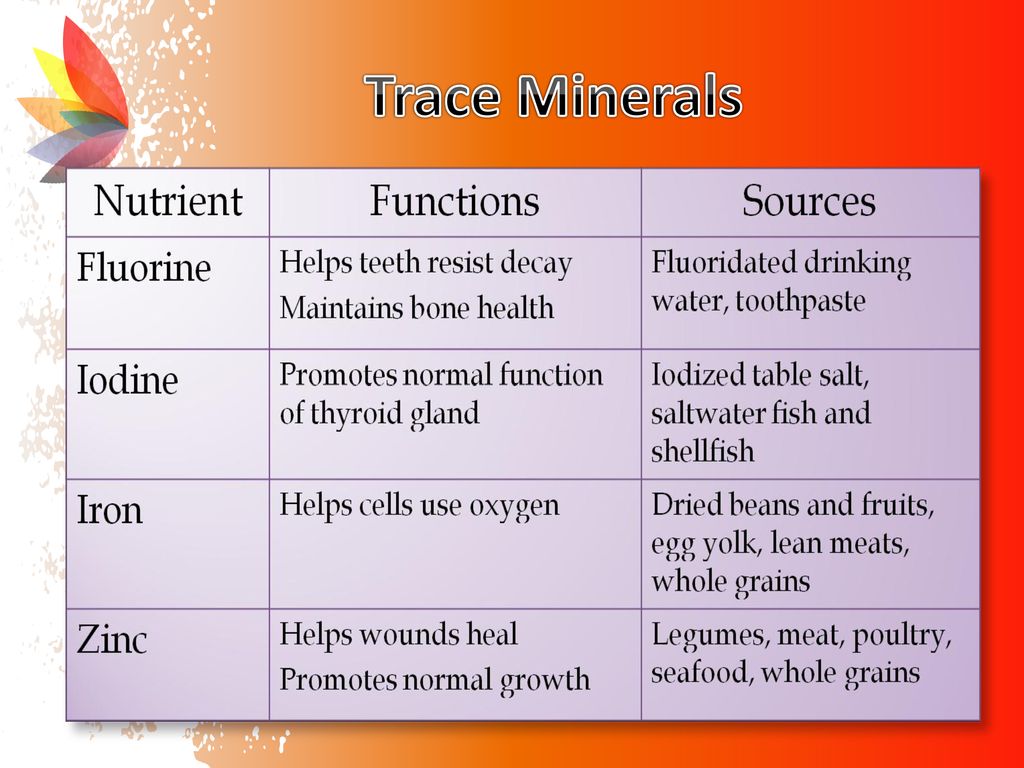



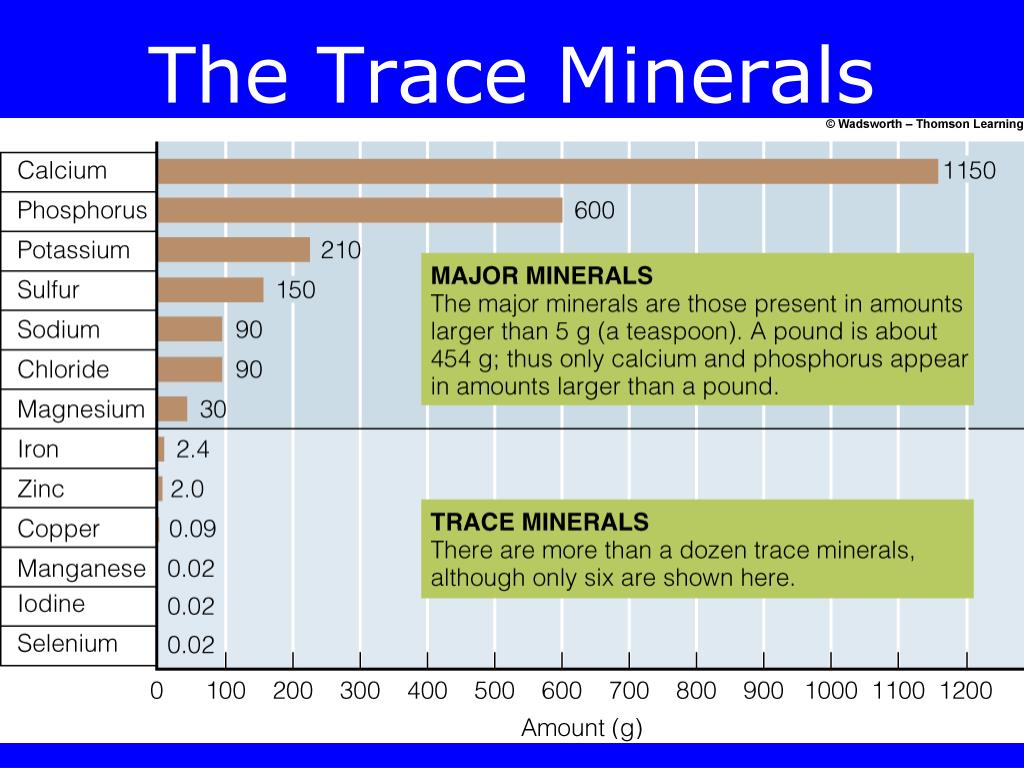
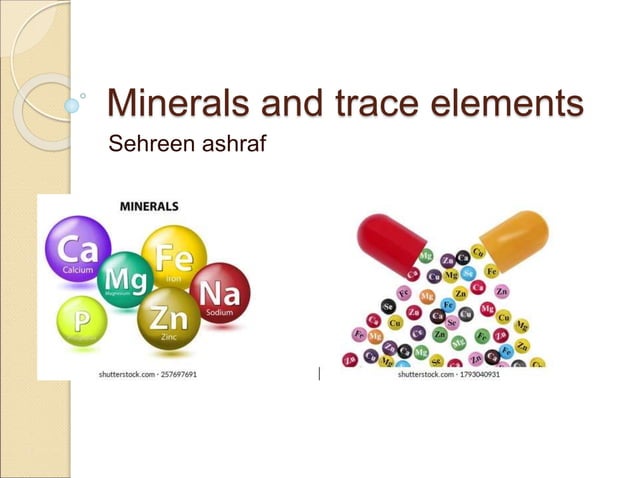
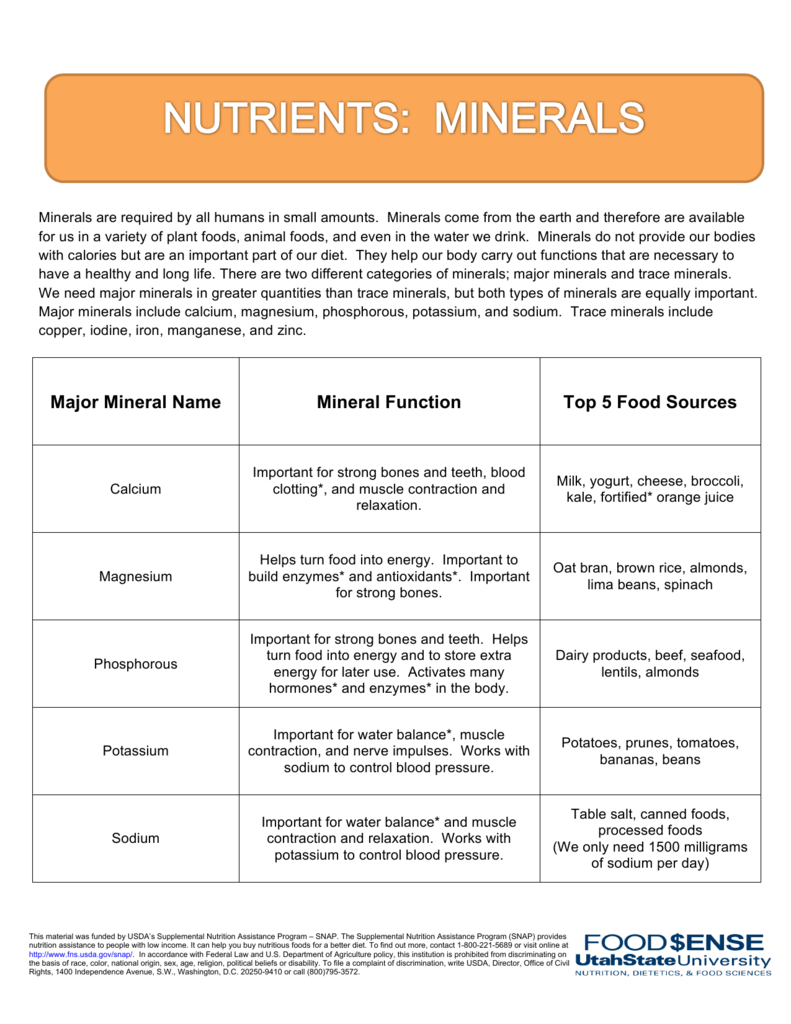

![Which Of The Following Is Considered A Trace Mineral [ANSWERED] Which of the following is not an essential trace min](https://media.kunduz.com/media/sug-question-candidate/20230223212721401532-4870883.jpg?h=512)
